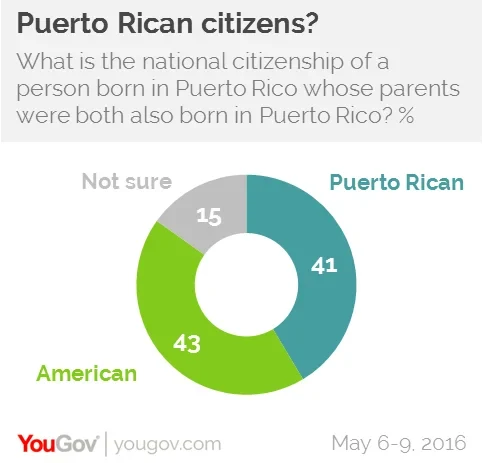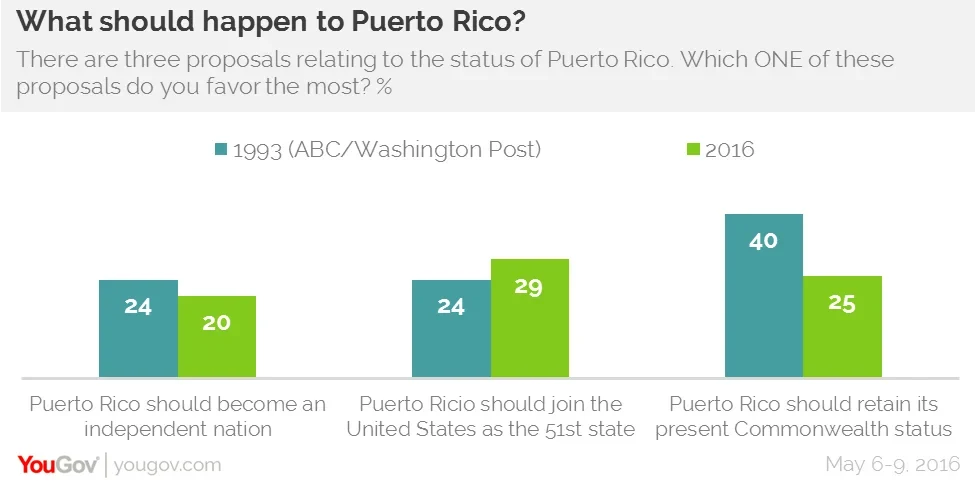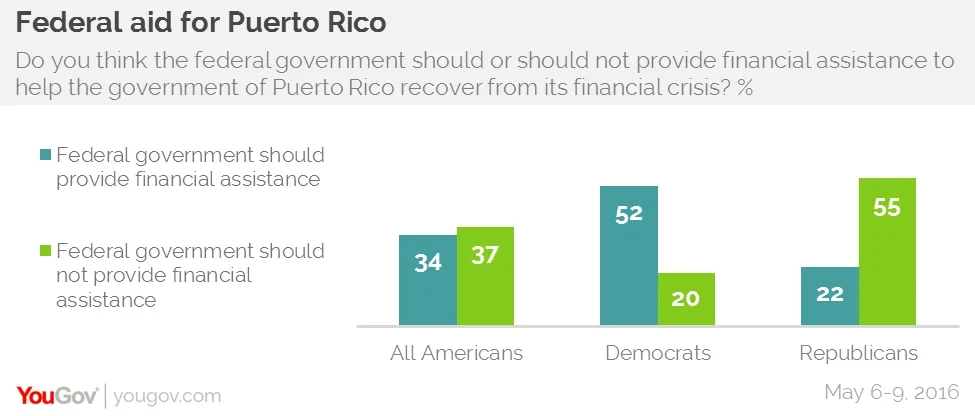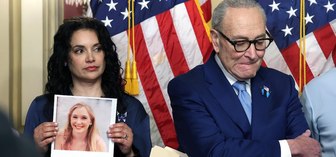Americans are divided on whether the federal government should aid Puerto Rico, and on whether or not Puerto Ricans are or are not even American

Americans are confused about exactly what Puerto Rico is, and whether the people who live there are American citizens. 41% of the public in the latest Economist/YouGov Poll might be surprised to learn that someone born in Puerto Rico whose parents were also born in Puerto Rico are American citizens.
Another surprise is that there is little difference between Republicans and Democrats and even between Hispanics and non-Hispanics on this question. Just under half of Hispanic Americans say those born in Puerto Rico to parents who were also born there are American citizens. 40% of Hispanics don’t believe that’s the case, and another 11% aren’t sure.
Puerto Ricans have been U.S. citizens since 1917, carry a U.S. passport, have free entry to the 50 U.S. states, and they can vote in those states if they establish residency.
The confusion over what Puerto Rico is may be part of the reason that Americans aren’t sure what the status of Puerto Rico should be. Those who say Puerto Ricans are American citizens are more likely to believe that the U.S Commonwealth should become the 51st state, but there is no consensus. Overall, less than a third think that, while relatively equivalent percentage choose independence for Puerto Rico or continuation of the commonwealth status.

More than two decades ago, there was also division over the future of Puerto Rico. Now, Republicans are more likely to support continuing the commonwealth status, Democrats more likely to favor statehood. But the margins are not large in either case.
Whatever the future, Puerto Rico is now experiencing serious financial difficulties, already having defaulted on a May 2 interest payment (It had issued municipal bonds paying higher rates than other units of government, so it was able to sell them and raise money easily, but its current financial situation means it cannot now pay its debt. See this New York Times summary,). Puerto Rico has another interest payment of $2 billion due July 1 that it cannot meet.
But this is not a situation most Americans are paying attention to. The poll was conducted just after the May default, but only 8% of the public said they were paying a lot of attention to the situation. Only one in three were paying at least some attention.
Congress is currently working on a bill that could help Puerto Rico, as it is prohibited by law from seeking the bankruptcy protections available to municipalities. But the American public is not necessarily in a giving mood. They are divided on whether or not the federal government should help. Of course, this is a partisan issue as well as a knowledge issue. Democrats favor government help by more than two to one, while Republicans oppose such assistance by an equally wide margin.

Those partisan differences mirror those frequently found when it comes to government spending in general.
As for giving Puerto Rico the ability to file for bankruptcy protection, many have no opinion. But the overall balance is negative. 29% would change bankruptcy laws to help Puerto Rice, 41% would not.
See the Economist/YouGov results
Economist/YouGov poll archives can be found here.








